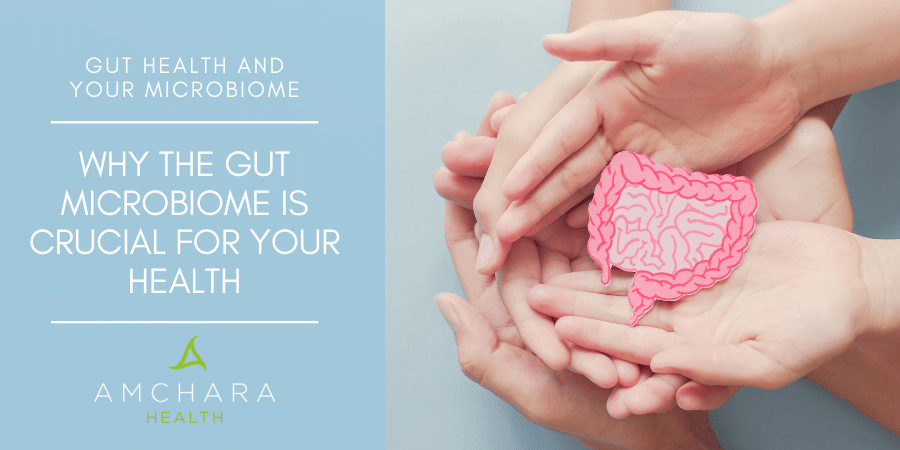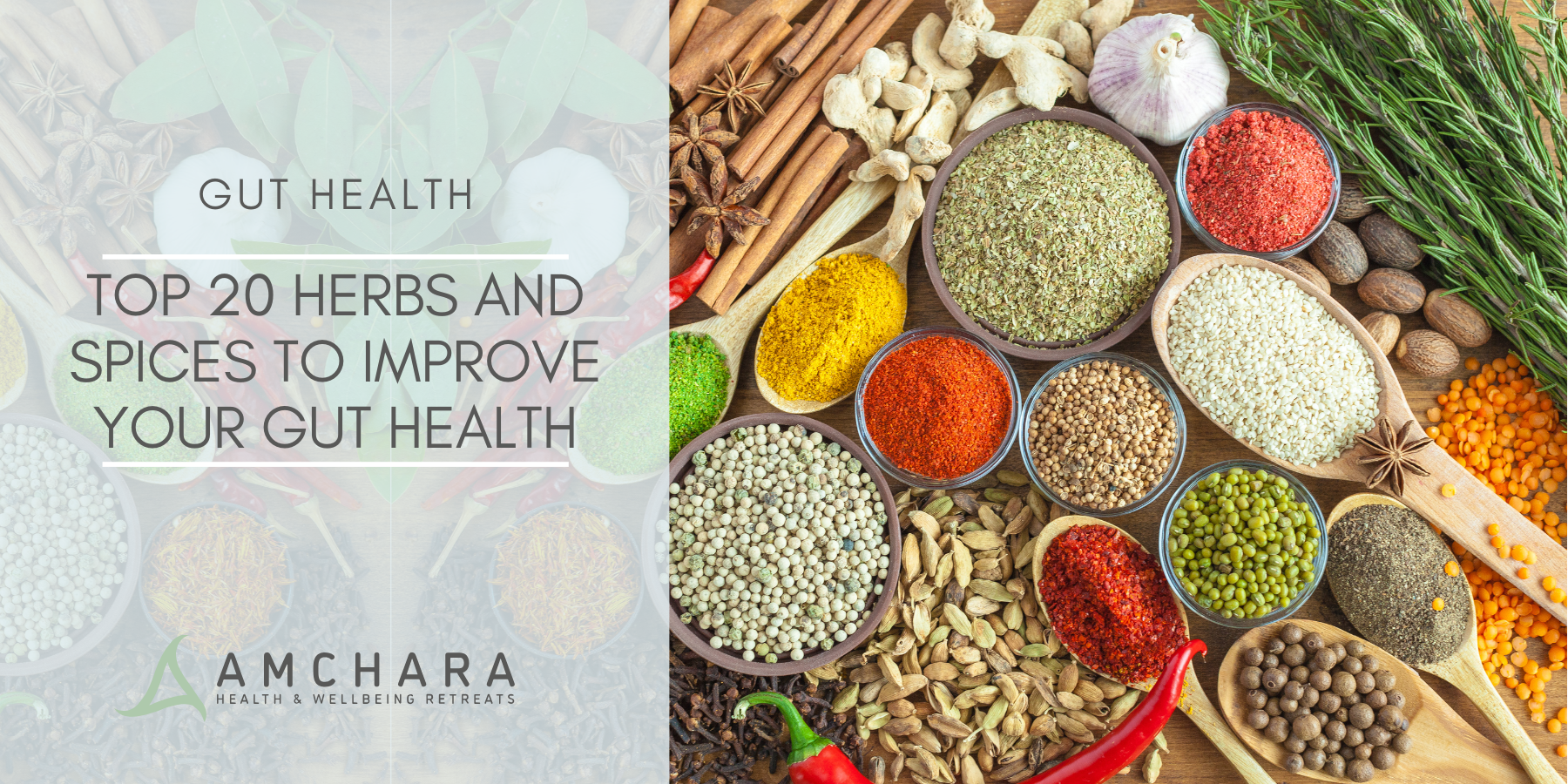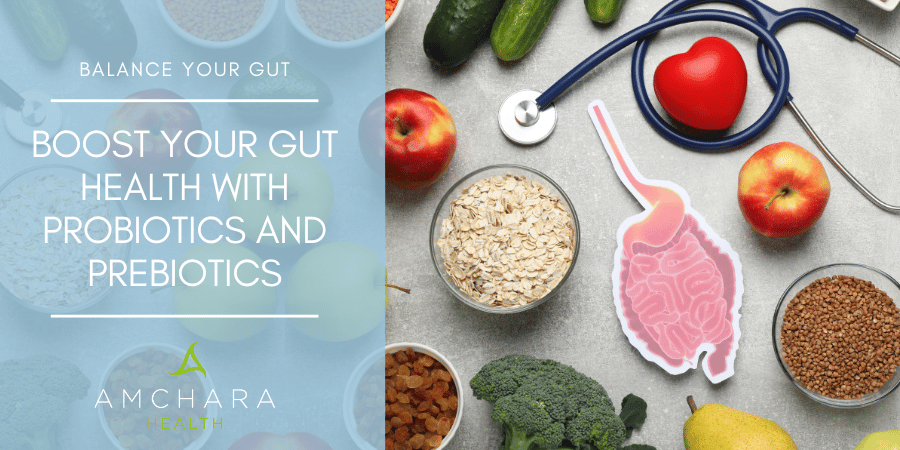Topics Covered in this article:
The gut exerts a massive effect on your overall health and wellbeing. A healthy gut plays an important role in many bodily functions, such as digesting food and contributing positively to heart and brain health, as well as promoting good sleep and improving mood and mental health.
Increasing evidence is also demonstrating the vital role of the gut in supporting a healthy immune system, and research suggests it may even help prevent the development of some autoimmune diseases and cancers.
The microbiome forms a vital part of your health. Comprising a diverse community of microbes made up of bacteria, fungi, viruses and archaea, your microbiome supports an array of bodily functions.
These microbes can be found all over the body, including in your mouth, skin, lungs and genitals, but the gut microbiota (the microorganisms in your intestines) contains the largest amount of bacteria, and diversity of species, in comparison to the rest of the human body.
Your gut microbiome is bigger than the average brain and weighs about 2kg. The only organ bigger than the gut microbiome is your liver.
We always take an evidence-based approach, orientated towards a holistic and Personalised Health approach, and aim to provide you with actionable knowledge and tips to help you on your journey to optimal health.
In this article, we will take a closer look at gut health, the influence of the microbiome, and what you can do to promote a healthy gut and optimise your overall health.
The microbiome
Scientific evidence is increasing to demonstrate that a balanced microbiome is vital to optimising whole-body health. Most microbes are symbiotic, which means they benefit the body, but some, usually present in smaller numbers, are pathogenic, meaning they can contribute to and promote the development of disease.
An imbalance in your microbiome can be caused when you get an infection, which can result in increased levels of bad bacteria, throwing your body out of kilter.
Studies show that a diversity of good bacteria in the gut can exert positive effects on a broad range of bodily functions, including enhancing immune response and function, reducing symptoms of depression, and combating obesity.
The gut-brain axis
The gut is sometimes referred to as the ‘second brain’ or Enteric Nervous System (ENS), and operates independently to the central nervous system.
The ENS is effectively a web of neurons residing in the gastrointestinal wall – reaching from the throat to the stomach, and through the intestines to the rectum. Its primary function is to aid the movement of the digestive tract and maximise the absorption of beneficial nutrients, as well as helping to break down and remove harmful pathogens. It also influences immune system function and impacts blood flow.
Your gut communicates with your brain, via both your nerves and the secretion of hormones. This ‘gut-brain’ connection or axis has been shown to exert influence on mood and wellbeing. A tangible example is the feeling of ‘butterflies in your stomach’, which is a well-known physiological stress response.
The health of your gut microbiome can impact the balance of the gut-brain axis. Evidence shows that differences in gut microbiota can influence behaviour, by altering the expression of neurotransmitters such as serotonin, and influencing the central nervous system, for example by promoting neuroinflammation.
Antibiotics and the microbiome
When you are ill, antibiotics are beneficial as they will kill the bad bacteria that are causing the infection. However, the problem is that whilst antibiotics are effective at killing the bad bacteria, they also kill some of the good bacteria in your gut, which has a negative impact on your microbiota and disrupts the overall balance.
Using antibiotics can result in reduced diversity of species, alter metabolism and increase the pool of antibiotic resistant genes, as well as cause diarrhoea. More research is needed to further investigate and understand how we can reverse these disruptions.
After antibiotics, it can take the body a long time to recover to pre-antibiotic levels of a balanced microbiome with healthy and diverse bacteria. Some research indicates that it can take up to six months for the body to recover from antibiotic damage.
Probiotics
Probiotics are live microorganisms – bacteria and yeasts – that have beneficial health effects, primarily by working to improve and restore your gut flora. Many doctors suggest taking probiotics alongside antibiotics as studies have found probiotics can reduce antibiotic associated diarrhoea by 52%.
If you are taking a course of antibiotics, a quality probiotic supplement could be helpful in reducing the negative impact of the antibiotics. Always discuss your individual requirements with a professional health practitioners, and choose quality products with a high dose of CFUs (colony-forming units) and a diverse variety of strains (between five and ten is optimal).
Another way to support your gut health is by eating probiotic foods such as kefir, sauerkraut, kimchi, yoghurt, miso, kombucha, tempeh, pickles, natto and certain cheeses (where the good bacteria survives the ageing process) such as cheddar, gouda, mozzarella and cottage cheese.
Prebiotics
Prebiotics are plant foods that ‘feed’ the microorganisms in your gut – so they are effectively ‘food’ for your good bacteria. These carbohydrates cannot be digested by your body and so go to your lower digestive tract, where your healthy bacteria feed on them to aid their growth.
Choosing natural whole foods with an emphasis on vegetables can help ensure you are maintaining a healthy balance of gut bacteria – good sources include apples, bananas, berries, chicory, garlic, greens, leeks, onions, tomatoes and soybeans.
It is typically beneficial to consume probiotics and prebiotics both whilst taking antibiotics and after the course has been finished, to support the recovery of your gut microbiome.
Promoting a healthy gut
In addition to probiotics and prebiotics, adopting the following can help you improve your gut health.
Avoid highly processed foods that reduce the amount of good bacteria in the gut.
Refined sugars, such as high-fructose corn syrup, are linked to an increase in inflammation, which in turn is linked to an increased risk of developing a number of diseases.
Chronic stress wreaks havoc on the whole body including the gut, so finding ways to reduce stress levels is important to improve your overall health and wellbeing. Try meditation or yoga, ensure you take regular exercise and get outside in fresh air when you can. Talking to friends and family can also help alleviate stress.
Getting enough good quality sleep is helpful to all aspects of health – aim for 7-8 hours a night and avoid blue light emitting devices for at least 90 minutes before bed.
Making sure you drink plenty of water aids the movement of food through your digestive tract and helps maintain a good bacterial balance.
The first stage of digestion is chewing your food – by chewing slowly and thoroughly, you begin the process of breaking food down, promoting the absorption of nutrients and making it easier for your digestive system to manage.
Takeaway
Gut health is a crucial component of your overall health, and we now understand that maintaining the balance of your microbiome is an important factor in promoting gut health.
Why not come to Amchara for a relaxing detox health retreat in the tranquil surroundings of the English countryside in Somerset?
With expert advice on hand from our experienced practitioners, you can benefit from personalised health advice, tailored to your needs and goals to help you maximise your health gains.
You will be immersed in a supportive and nurturing environment that enables you to switch off, relax and kickstart your health journey, including physical activities and empowering educational talks.
Juicing and fasting may be recommended, according to your personal situation and unique health needs.
Or why not try Amchara Juicery – cold-pressed, nutritious juices delivered to your door to help you boost your health, naturally. Created by Amchara’s expert in-house health team, you can enjoy a range of fresh, organic juice cleanses (and super soups) at home.
Related articles you might be interested in:





